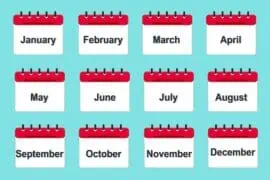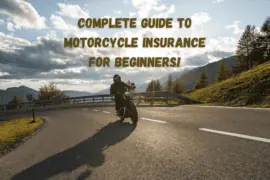Motorcycles can sustain significant damage from a minor collision. With custom parts and features installed, creating a big claim won’t take much.
That’s just the equipment costs of an accident. You might have lost wages and medical bills to manage as part of this process. If the adjuster derails your claim, there could be delays in receiving your money.
Didn't You Try Our Quote Comparison Tool Yet? Save BIG by Doing it!
Here are some suggestions to help you deal with the claims process, whether you’re at fault for the accident or another person’s insurance will eventually cover the amount owed.
Table of Content
Tip #1: Don’t Become Friends
The claims adjuster isn’t there to become your next best friend. Their role is to protect their employer’s interests while evaluating the incident. If another party is likely at-fault for a collision, their role could be to try to find ways to deny the claim.
Most adjusters start interviews by building trust to form a relationship. If you feel comfortable, you might say something that could cost you some money in the long run. Try answering their questions in the following ways.
- Keep everything concise. Provide only what was requested in the question.
- Be honest about everything. Lies put you on a path toward denying the claim.
- Never admit fault or apologize. That makes the denial almost automatic.
Some adjusters use bullying tactics by answering the same questions repeatedly. Be firm and honest with each answer.
Tip #2: Ask About the Fault
Most insurance companies review the facts about a collision to make liability determinations before an adjustor gets to work.
Some adjustors come into an interview with a negative perception of motorcyclists. If you suspect ambiguity or bias, ask the individual who they think caused the collision. When the answer is you, ask for specifics that can be forwarded to an attorney.
Tip #3: Avoid the Quick Settlement
Motorcycle collisions are often costly because of the higher chance of an injury occurring. Insurance companies are eager to settle quickly to reduce their potential liability for claims. Avoid accepting any offer until you’ve received medical treatment and had a conversation with a legal professional about what you could receive.
Remember – the adjuster wants to protect their employer’s best interests. That means they want to settle for the least amount possible. You don’t need to accept the first offer.
Tip #4: Work with a Trusted Agent or Broker
Insurance companies often get criticized for handling the claims process after a motorcycle accident, but that generalization is a bit unfair. When you work with an agent or broker you trust, you’ll receive the support you need to get through this process.
The best people will protect your financial interests while pushing the claim through the subrogation process. You’ll likely need to prove that you paid the deductible first, which happens with a credit card statement or a repair invoice.
Tip #5: Be Ready to Sue
If the other party is determined to be at fault and doesn’t have insurance, you might need to pursue them through the court system. Motorcyclists hit by an uninsured driver should follow these steps.
- File a police report immediately, even if the accident seems minor.
- File an uninsured motorist claim with your insurance provider within 14 days or the time your policy allows.
- Gather evidence that the other person is uninsured, then press charges if you know you’ll win the case in tort states to ensure they’re held liable.
Some insurance companies will file lawsuits on your behalf against uninsured drivers. Your policy will outline what to expect in this situation.
The best way to deal with insurers is to file claims promptly and answer questions honestly. When denials occur or trouble develops with subrogation, you or your insurer can escalate the response to ensure you receive what is owed.
Use This Tool for Free and Save on Quotes!






